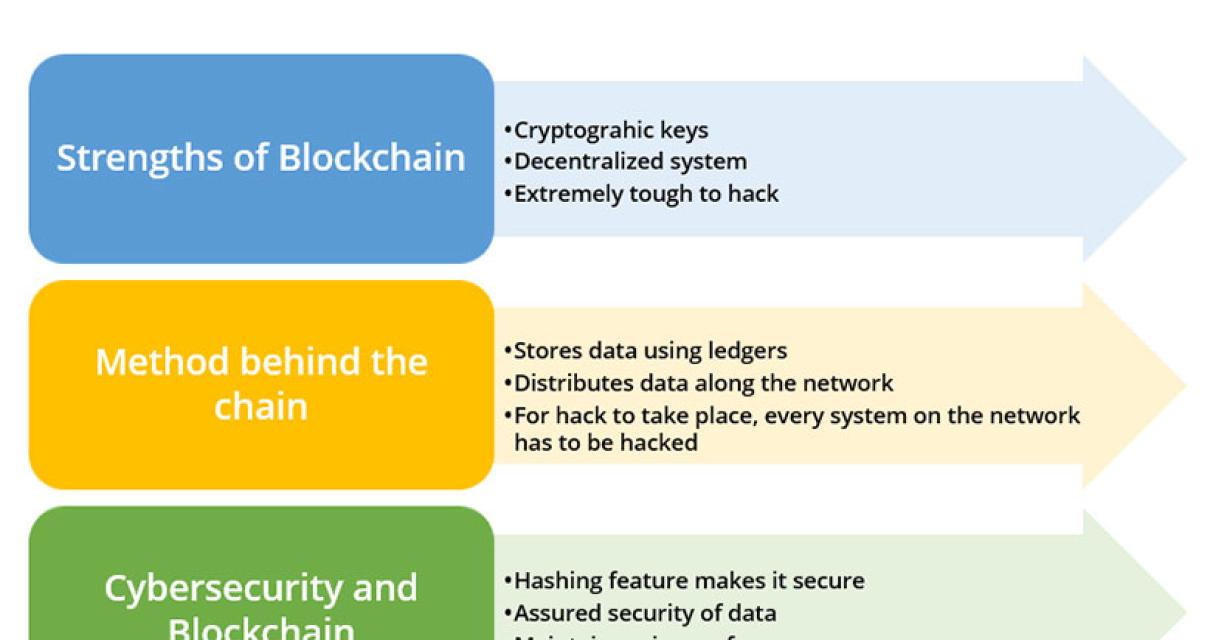The Evolution of Blockchain Cybersecurity
The history of blockchain cybersecurity can be traced back to the early days of the technology. Blockchain was originally designed as a way to create an open, secure, and tamper-proof ledger of transactions. As the technology evolved, so did the ways in which it could be used to protect data.
Blockchain was first used to secure online transactions in 2008. At the time, there was a lot of concern about the security of online data, and blockchain was seen as a way to solve that problem. The technology allowed for the creation of a tamper-proof record of all transactions, which made it difficult for anyone to tamper with the data.
Since its inception, blockchain has been used to secure a variety of data sets. It has been used to protect the identities of online users, to track the movement of goods and money, and to secure online transactions.
As blockchain cybersecurity evolves, so too does the way in which it can be used to protect data. Recent developments have seen the technology being used to protect the data of online users, to track the movement of goods and money, and to secure online transactions.
As blockchain cybersecurity continues to evolve, it is likely that we will see more uses for the technology in the future.
The Benefits of Blockchain Cybersecurity
The benefits of blockchain cybersecurity are many and varied. They can include the following:
1. Increased Security
Blockchain cybersecurity is built on a secure and tamper-proof ledger that can be used to track all transactions and assets. This makes it an extremely secure platform, as it is not possible for anyone to tamper with the information recorded on it.
2. Increased Transparency
All transactions on a blockchain are public, meaning that everyone can see them. This transparency makes it much harder for criminals to operate undetected, as everyone can see what they are up to.
3. Reduced Costs
Because blockchain cybersecurity is built on a secure platform, it can reduce the costs associated with security measures. This means that businesses can save money on security expenses, while still being able to maintain a high level of security.
4. Improved Data Quality
Because all data on a blockchain is verified and tamper-proof, it is highly accurate. This means that data can be relied on to be accurate and reliable, which can lead to improved data quality and increased insights.
5. Increased Efficiency
As blockchain cybersecurity is built on a secure platform, it can improve the efficiency of business operations. This improves the overall flow of information, which can lead to improved decision making and faster execution.
The Risks of Blockchain Cybersecurity
There are several risks associated with cybersecurity when it comes to blockchain.
The first risk is that hackers could gain access to private information, such as user names and passwords, on a blockchain network. This could allow them to access funds or other valuable assets stored on the network.
Another risk is that a blockchain network could be compromised by a cyberattack. This could allow thieves to steal cryptocurrency or other assets stored on the network.
Finally, blockchain networks are vulnerable to hacking attempts because they are decentralized. This means that there is no central authority that can be trusted to protect the network from attack.
The Challenges of Blockchain Cybersecurity
The blockchain is a distributed ledger that records transactions between two or more parties. Transactions are verified by network nodes and then added to the blockchain. Nodes use the blockchain to timestamp transactions and to secure the network.
Blockchain cybersecurity challenges include:
1. Tampering with the blockchain. Nodes use cryptography to protect against tampering with the blockchain. However, tampering is possible if an attacker has access to a majority of the computing power on the network.
2. Attackers can steal cryptocurrency. Attackers can steal cryptocurrency by attacking nodes or by stealing directly from users.
3. Attacks on the network. Attacks on the network can cause nodes to stop functioning or to reject legitimate transactions.
4. Attacks on users. Attackers can attack users by stealing their cryptocurrency or by phishing attacks that lead users to believe they are going to make a purchase, but instead receive a malicious link that installs malware on their computer.

The Future of Blockchain Cybersecurity
As blockchain technology expands, so too does the potential for cyberattacks. In order to combat this threat, businesses and individuals must be proactive in their cybersecurity efforts. Here are five ways blockchain technology can help secure cybersecurity:
1. Blockchain provides a tamper-proof ledger of transactions. This makes it difficult for hackers to modify or delete information, which protects against data breaches.
2. Blockchain technology can be used to create a “distributed security system” that monitors and protects data throughout its entire lifecycle. This eliminates the need for a centralized security system, which increases the security of data.
3. Blockchain technology can be used to create “smart contracts” that automatically execute when specific conditions are met. This helps ensure that contracts are fulfilled and security is maintained.
4. Blockchain technology can be used to track the origins of digital assets. This helps identify and prevent cyberattacks from happening in the first place.
5. Finally, blockchain technology can be used to create a “digital identity” system that allows people to securely manage their personal information. This helps protect them from identity theft and other cyberattacks.
How Blockchain Can Improve Cybersecurity
A blockchain is a distributed database that allows for secure, transparent transactions between parties. This technology can be used to improve cybersecurity by creating a tamper-proof ledger of all transactions. This ledger can be used to track the history of all digital assets, making it difficult for thieves to steal or corrupt data. Additionally, blockchain can be used to create a “smart contract” system. These contracts are self-executing, meaning that they automatically execute the terms of the agreement once certain conditions are met. This technology can be used to create a tamper-proof contract system for a variety of applications, such as financial transactions and supply chains.
How Blockchain Can Revolutionize Cybersecurity
Blockchain technology can revolutionize cybersecurity in a number of ways.
First, blockchain can help secure data by providing a tamper-proof record of all transactions. This makes it difficult for hackers to steal or change information.
Second, blockchain can help ensure that devices are only accessed by authorized individuals. This prevents unauthorized individuals from accessing sensitive information or devices.
Third, blockchain can help prevent cyberattacks by tracking malicious activity and identifying and blocking potential threats.
Finally, blockchain can help increase transparency and trust in the cybersecurity industry. This can help improve consumer confidence and deter cyberattacks.

The Potential of Blockchain in Cybersecurity
Blockchain technology is a secure, transparent, and tamper-proof distributed ledger that allows parties to conduct transactions without the need for a third party. It can be used in a variety of applications, such as cybersecurity.
One potential use of blockchain in cybersecurity is to create a tamper-proof record of cyberattacks. This record could be used to identify the attackers and help to prevent them from attacking again.
Another potential use of blockchain in cybersecurity is to create a secure digital identity for users. This identity could be used to access online resources and services securely and anonymously.
Finally, blockchain could be used to track the movement of digital assets in cybersecurity. This information could be used to identify and prevent theft of digital assets.

Why Blockchain is Important for Cybersecurity
A blockchain is a distributed database that allows for secure, transparent and tamper-proof transactions. The technology behind blockchain is used to create a secure digital ledger of all cryptocurrency transactions. Blockchain has the potential to revolutionize the way we do business and protect our digital security.
How Blockchain Can Help Improve Cybersecurity
One of the biggest benefits of using blockchain technology in cybersecurity is its transparency. Every transaction that takes place on a blockchain is publicly visible, which makes it difficult for criminals to hide their activities. This makes it much harder for hackers to steal or manipulate data.
Another benefit of using blockchain in cybersecurity is its tamper-proof nature. Any changes or updates to a blockchain are automatically recorded and verified by the network of nodes, making it virtually impossible for anyone to falsify information. This prevents attackers from altering or stealing data, which can often lead to serious security breaches.
Overall, blockchain is a powerful tool that can help improve cybersecurity. Its transparency and tamper-proof features make it difficult for attackers to steal or manipulate data, while its ability to record and verify changes makes it virtually impossible for them to falsify information.
How Blockchain Will Change Cybersecurity
Blockchain technology is set to revolutionize cybersecurity. The distributed ledger system allows for secure and tamper-proof transactions between parties. This will help to prevent cyberattacks and protect data.
For example, blockchain can be used to track the origin of a cyberattack. This information can then be used to identify the perpetrator and prevent future attacks.
Other applications of blockchain in cybersecurity include:
1. Authentication and authorization: Blockchain can be used to verify the identity of users and authorize their access to resources.
2. Data sharing: Blockchain can be used to share data securely between organisations. This will help to prevent data breaches and protect customer data.
3. Cybersecurity monitoring: Blockchain can be used to monitor security threats and detect unauthorized activity. This will help to protect your organisation from cyberattacks.
4. Cybersecurity solutions: Blockchain can be used to create new cybersecurity solutions. This will help to protect your organisation from cyberattacks and improve security overall.
What Blockchain Means for Cybersecurity
Blockchain technology is a distributed ledger system that allows for secure, transparent and tamper-proof transactions. It was created as a way to track the ownership of digital assets, such as money and property. Blockchain is also being used to create smart contracts and to power decentralized applications.
Because blockchain is decentralized, it offers security advantages over traditional systems. For example, if one party to a transaction is compromised, the data on the blockchain cannot be altered. Additionally, because blockchain is encrypted, it is difficult for unauthorized individuals to access information.
With blockchain technology, businesses can create tamper-proof records of transactions. This can help protect against fraud and theft. In addition, it can help companies cut costs associated with verifying information.
The Impact of Blockchain on Cybersecurity
There is no question that blockchain technology has the potential to revolutionize the way we think about cybersecurity.
Blockchain is a distributed ledger that allows for secure, transparent, and tamper-proof transactions. Transactions are verified by network nodes and then added to the blockchain in chronological order. This makes it incredibly difficult for hackers to tamper with the data.
Additionally, blockchain can be used to create a “digital trust” system. This system allows users to verify the legitimacy of a digital asset or document without relying on a third party. This could be incredibly important in the future when it comes to cybersecurity.
For example, imagine you are a business owner. You want to ensure that your customers’ data is safe and secure. You could use blockchain to create a digital trust system that would allow you to verify the legitimacy of your customers’ data. This would allow you to ensure that your customers’ data is safe and secure.
Overall, blockchain has the potential to revolutionize the way we think about cybersecurity. It has the ability to secure data and create a “digital trust” system. This could be incredibly important in the future when it comes to protecting our data from hackers.